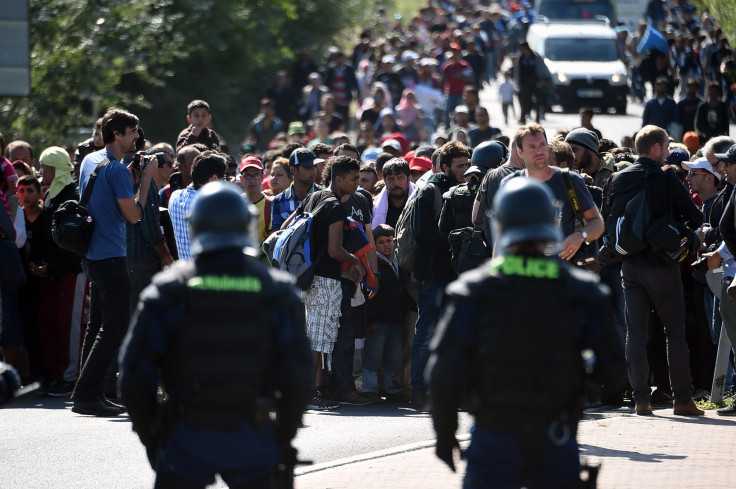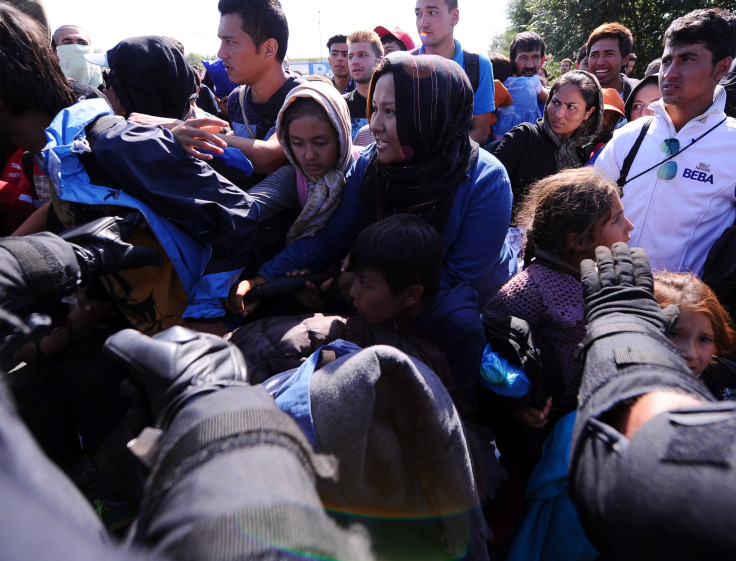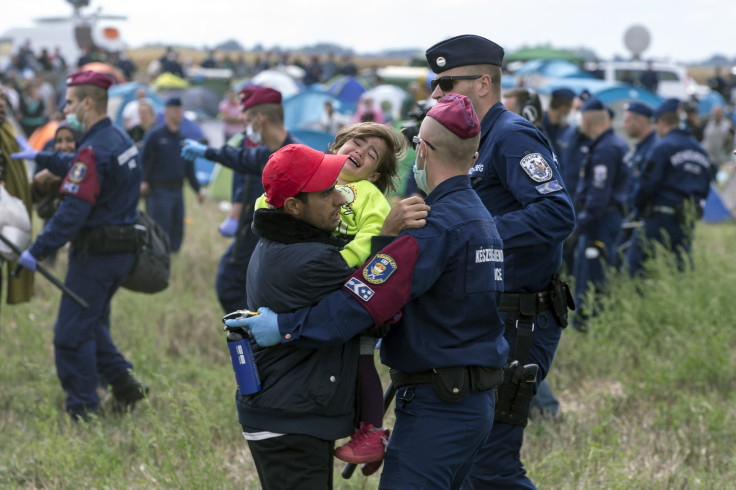Europe Refugee Crisis: Juncker Unveils Quota Plans For 120K Asylum Seekers, Calls For 'Bold, Determined Action'

European Commission President Jean-Claude Juncker said Wednesday that member states of the European Union will have to accept another 120,000 people seeking refuge from war-torn Middle East and northern Africa. Juncker’s comments came during his first State of the Union speech to the European Parliament in Strasbourg, France.
The EU countries will have to agree by next week to take in 120,000 refugees under binding quotas to help in Europe’s biggest refugee crisis since World War II. The number proposed is in addition to the 40,000 spots set out by the commission in May. Countries refusing to take in their allotted number of refugees could face financial penalties.
Juncker opened his speech urging “bold, concerted action” against the refugee crisis, saying it should be the European Commission's first priority.
“Unprecedented numbers of refugees are coming to Europe at the moment,” Juncker said in his speech. “The member states where most refugees first arrive, and for the moment this is Greece, Hungary, Italy, cannot be left alone to cope with this enormous challenge.”

Juncker said that the numbers distributed to each country would depend on the GDP, population, unemployment rate and asylum applications already processed.
"The refugee crisis will not simply go away," Juncker told EU lawmakers, noting that some 500,000 refugees have entered Europe this year, mainly from Syria and Libya. "It is high time to act."
"We are fighting against Islamic State, why are we not ready to accept those who are fleeing Islamic State?" he said.
Germany, the main destination for many refugees, supports mandatory quotas, but some EU countries, including the Czech Republic, Slovakia, Poland and Romania, have opposed the compulsory system.
German Chancellor Angela Merkel, meanwhile, renewed her demand for compulsory sharing of refugees.
“We need a binding agreement on a binding distribution of refugees among all member states, according to fair criteria,” Merkel said during the parliament’s annual budget debate Wednesday, according to Reuters. "Those who are not fleeing political persecution or war but are coming to us out of economic need will not be able to stay in Germany."
The European refugee crisis is growing dire by the week. Hundreds of thousands of people have crossed into the European Union since January. At least 850,000 people are expected to cross the Mediterranean seeking refuge in Europe this year and the next, the United Nations said Tuesday.
Juncker said Wednesday that the commission is also proposing a permanent relocation mechanism to help tackle future refugee emergencies. “I’m strongly in favor of allowing asylum seekers to work, while their applications are being processed. Work is a matter of dignity,” he said.

© Copyright IBTimes 2024. All rights reserved.





















